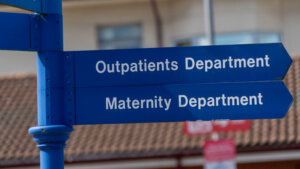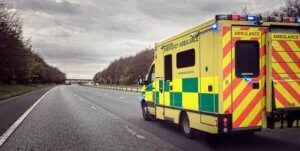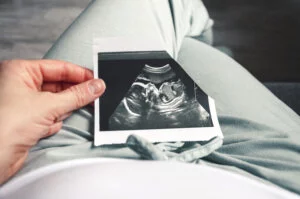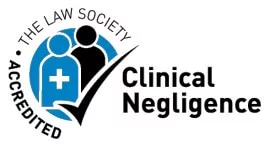Pulmonary Embolism, DVT & Blood Clot Negligence Claims
Blood Clot, DVT & Pulmonary Embolism Compensation Claims
If you have suffered from a Blood Clot, DVT, or PE due to medical negligence, you may be entitled to compensation. Understanding the causes, symptoms, and potential impacts of these conditions is crucial in pursuing a successful compensation claim.
“Small but very effective and experienced team so every client benefits from the personal touch but also highly skilled litigation know-how. Capability of the team means they can handle all aspects of very complex cases as well as straightforward matters.”
“Osbornes Law is an established firm which handles a breadth of complex and high-value clinical negligence matters.”
Introduction to Blood Clot, DVT & Pulmonary Embolism Compensation Claims
Blood clots, including Deep Vein Thrombosis (DVT) and Pulmonary Embolism (PE), are serious medical conditions that can lead to significant health complications and even be life-threatening. If you have suffered from a blood clot, DVT, or PE due to medical negligence or unsafe working conditions, you may be entitled to compensation. Understanding the causes, symptoms, and potential impacts of these conditions is crucial in pursuing a successful compensation claim. Our comprehensive guide provides essential information on how to navigate the claims process, ensuring you receive the justice and financial support you deserve.
What are blood clots?
The ability of blood to clot is vital: when we are injured, a clot plugs the damage, stopping the bleeding and providing a mechanical defence against infection. The clot is protective. However, when clots occur where they are not necessary, they can cause harm. A blood clot in the lungs is called a Pulmonary Embolism.
Deep Vein Thrombosis (DVT) is a blood clot (thrombosis) that forms within a deep vein. DVT most commonly develops in the deep veins of the leg or calf but can occur within any deep vein including those within the pelvis or abdomen. DVT commonly occurs in the legs but can occur in any area of the body.
Typical symptoms of a leg DVT include pain and swelling in the leg and red, warm skin over the affected area. However, some DVTs do not cause any symptoms at all. The danger of DVTs is that there is a risk that a piece of the clot breaks off and enters the free-flowing blood stream, which takes blood to your lungs.
If a clot blocks off one of the blood vessels in your lungs, you could become seriously ill, with shortness of breath and chest pain. You may feel lightheaded and could cough up blood. If your symptoms are severe the clot can be quickly fatal. A clot formed this way in the lungs is called a pulmonary embolism (PE). Around 1 in every 10 people who have an untreated DVT will develop a PE. For this reason, DVTs and PEs require urgent medical attention.
Diagnosing DVT
There are several different tests that can help diagnose a DVT. A D-dimer blood test picks up the presence of a blood clot in your bloodstream. However, the D-dimer count can also be raised because of other things such as recent injury or pregnancy, so it is only useful as an indicator that something may be wrong. A Doppler ultrasound scan of your leg can detect blood flow in your leg’s deep veins, and if there is a clot present, the flow will be slowed or even stopped completely. Finally, there is a venogram, during which a dye is injected into your leg blood vessels and an X-ray is taken. A blocked vessel should show up clearly on the film.
Signs and symptoms of a DVT can include the following:
- Swelling usually in one leg or arm. Rarely there is swelling in both limbs;
- Pain or tenderness usually in the leg. The pain usually starts in the calf and can feel like cramping;
- Skin discolouration usually blue/red/purple and on the leg;
- A sensation of warmth in the skin.
Who is at greater risk of suffering a DVT?
What strikes me from the cases I have run relating to the misdiagnosis of DVTs is that it can occur in people of all ages, male/female, and what I find most concerning is that some of my clients have been apparently very healthy and therefore it has not occurred to them nor their doctor that they may be experiencing symptoms of a DVT or PE. A common thread running through my cases have been clients who have a low BMI, are physically active, non-smokers, young and are essentially healthy people but have suffered sporting injuries and then developed the DVTs during a period of immobility either as a result of surgery or a lower leg cast. On the other hand, other DVT cases have featured people who are at higher risk of DVT or PE but their doctors have failed to recognise this and act on suspicious symptoms.
A DVT is more likely in patients who are:
- Over 60;
- Smokers;
- Overweight;
- Previous history of DVT;
- Taking the contraceptive pill or HRT;
- Cancer patients;
- Recent lower leg surgery or a period of immobility;
- A history of varicose veins;
- Pregnant.
Diagnosing a Pulmonary Embolism (PE)
In addition to the DVT tests, there are a couple of special tests that are used to see if there is a lung clot. Like the venogram for your leg, pulmonary angiography is when dye is used to show up the blood flow in your lungs, and it is visualised using a CT scan, instead of an X-ray. Then there is a specialised scan known as a ventilation-perfusion or V/Q scan which examines both the blood and airflow in your lungs.
Signs and symptoms of a PE will often include:
- Shortness of breath;
- Chest pain;
- Coughing.
Another blood clotting condition is thrombocytopenia which develops when the blood platelet count is so low that the blood cannot clot efficiently and internal bleeding can occur. Common signs/symptoms are:
- Easy or excessive bruising;
- Superficial bleeding into the skin that appears as a rash or small reddish-purple spots on the lower legs;
- Excess bleeding from cuts;
- Bleeding from gums or nose;
- Blood in urine or stools;
- Excess menstrual bleeding;
- Fatigue.
Treatment of DVT and Pulmonary Embolism (PE)
The main treatment for any type of clot is anticoagulant medication. These are drugs that stop blood clotting quickly. If you are unable to take anticoagulant medication for any reason, it is possible to have a filter placed inside the largest vein ( the vena cava) which will trap any clots that may arise, preventing them from going to your lungs.
What happens if a DVT is misdiagnosed?
Misdiagnosis of Deep Vein Thrombosis (DVT) can have serious, potentially life-threatening consequences. When DVT is not correctly diagnosed and treated, the risks increase significantly. Here are the key consequences of misdiagnosed DVT:
- At best you become susceptible to damage of the surrounding tissues and at worst you are vulnerable to the development of a life-threatening PE, which happens in around 50% of people with DVT. This occurs when a part of the blood clot breaks off and travels to the lungs, blocking a pulmonary artery. PE can be fatal if not treated immediately.
- Long-term damage to the veins, resulting in chronic venous insufficiency. This condition impairs the blood flow in the veins, causing swelling, pain, and skin changes in the affected limb. Over time, this can lead to venous ulcers, which are difficult to treat and significantly impact the quality of life.
- Post-thrombotic syndrome is a common complication of DVT that occurs when the clot damages the veins and their valves. Symptoms include chronic pain, swelling, and discolouration of the skin in the affected leg. PTS can be debilitating and can lead to severe mobility issues.
- Without proper treatment, the impaired blood flow due to DVT can cause tissue damage in the surrounding areas. In severe cases, this can lead to gangrene, where the tissue dies and becomes infected.
- The failure to diagnose and treat DVT promptly increases the overall risk of dying. This is particularly true for high-risk individuals, such as those with a history of clotting disorders, recent surgery, or prolonged immobility.
DVT and Pulmonary Embolism Negligence Claims
To make a successful claim for medical negligence, it must be shown that a duty of care was owed to the patient and that duty of care was breached, causing harm.
Speak to a specialist
If you think that you have been the victim of a DVT or PE misdiagnosis and that you have a case to claim for compensation, please get in touch with our specialist team.
Our promise to you
- We will review your DVT negligence claim by advising you on the NHS complaints procedure or other alternative procedures if your case does not relate to NHS care and treatment.
- We provide a free initial consultation and case review
- We can assist you with any issues that you may have regarding the complaints procedure or that you encounter in obtaining copies of your medical records.
- We will advise you of the course of action with respect to your case.
Contact us
Call us 020 7485 8811
Email us Send us an email and we’ll get back to you
Small but very effective and experienced team so every client benefits from the personal touch but also highly skilled litigation know-how. Capability of the team means they can handle all aspects of very complex cases as well as straightforward matters.
Osbornes is a very respected firm in the marketplace.
They handle really complex cases very well
The clinical negligence team are knowledgeable and professional in their approach and demonstrate a high level of skill in litigation work.
Osbornes Law offers experience in obstetric and fatal claims as well as niche cauda equina cases.
Osbornes Law is an established firm which handles a breadth of complex and high-value clinical negligence matters.
Osbornes has a skilled team of solicitors advising clients on a wide range of clinical negligence matters.
Hard working, approachable, good knowledge of clinical negligence and clients’ specific conditions
A joy to work with and always 100% client focused at all times.
The clinical negligence team at Osbornes is much lauded for its ability to ‘represent the diverse range of London-based clients
“The team is very quick and efficient in responding."
"Obsbornes Law is always client-focused and works tirelessly to obtain the best outcomes for clients."
‘They are ambitious for their clients and expect high standards from all who work with them.’
"Osbornes somehow combine the accessibility of a local firm, with the professional standards of a national or city outfit."
"Osbornes, is described as having ‘superb judgement and a medical knowledge that is second to none."
Stephanie has developed a particularly strong reputation for her handling of birth injury claims, as well as cases concerning surgical negligence and delays in surgery.
"An excellent firm which achieves fantastic outcomes for clients."
"Stephanie Prior takes on complex cases and gets excellent results. She has a background in medicine which serves her clients well and is a realistic but tough litigator."
"Stephanie Prior is hugely dedicated, adored by her clients, tenacious, efficient and extremely knowledgeable."
"Stephanie Prior is very good with troubled clients and is easily able to make them feel at ease."
"Stephanie shows sensitivity and deals with things in an understanding way."
Osbornes provides a very intimate and personal client service which is increasingly rare in this sector.
The lawyers in the team are highly experienced and will drive cases very hard on behalf of their clients.
"Stephanie Prior has a realistic attitude to the complexities of the cases. She wins the trust of her clients and goes the extra mile to ensure they get the best outcomes."
"Stephanie Prior... manages a varied caseload, including obstetric claims, child and adult brain injury cases and fatal and non-fatal spinal cord injury cases."
"Stephanie is experienced, knowledgeable of all aspects of clinical negligence work, and strategic in running cases."
"An exceptional outfit. They take on difficult cases, fight hard and win."
"The team were extremely professional in putting my needs first. There was a joined-up approach to catering for the client, and all lawyers involved were briefed and constructive."
Stephanie Prior is always very professional and kind. Highly recommended.
Quite simply excellent, with a highly competent and well-rounded team. They understand complex medical litigation and have been our lifesavers, and we will always owe them our immense gratitude.
News & InsightsVIEW ALL
- 13.5.2025
Damages Recovered for Necrotic Pressure Sore
Elline Demetriou recovers damages following a necrotic pressure sore on her client’s heel Elline Demetriou, Solicitor in our clinical...
Read more - 12.5.2025
Complaints Against Suspended Surgeon Ms Kuldeep Stohr
Ms Kuldeep Stohr, orthopaedic surgeon at Addenbrooke’s Hospital suspended In February 2025, Cambridge University Hospitals NHS Foundation Trust (CUH) confirmed...
Read more - 6.5.2025
Six-Figure Settlement for Negligent C-Section Delivery
Osbornes secures a six-figure settlement following a negligent caesarean section delivery Jodi Newton, Partner and head of our Obstetric and...
Read more - 6.5.2025
Six-Figure Settlement for Negligent Shoulder Surgery
Settlement following a claim against Bedfordshire Hospitals NHS Foundation Trust Elline Demetriou, a Solicitor in our clinical negligence team, acted...
Read more - 29.4.2025
Five-Figure Settlement in Fatal Medical Negligence Case
Osbornes Law secures a five-figure compensation following a fatal medical negligence claim Osbornes acted for our client, E, who brought...
Read more - 4.4.2025
Time To Move On From Physician Associates?
BMA raises concerns over patient safety: the risks of Physician and Anaesthesia Associates in the NHS The British Medical Association (...
Read more - 13.3.2025
Addenbrooke’s Hospital Complaints
Review finds harm to children by surgeon at Addenbrooke’s Hospital An independent review by Cambridge University Hospitals NHS Foundation...
Read more - 4.2.2025
Claim Settled for Child’s Surgery Injuries
Osbornes secures settlement for child’s surgery-related injuries Osbornes Law successfully represented a minor, X, in a claim against two...
Read more - 29.1.2025
£27,000 DVT Claim Settled Against Royal Free London NHS
Successful settlement for DVT case against Royal Free London NHS Foundation Trust Successful Settlement of £27,000.00 for DVT Claim against Royal...
Read more - 14.10.2024
Multi-Million Settlement in Cerebral Palsy Negligence Case
Judge awards multi-million settlement in cerebral palsy medical negligence claim Jodi Newton, Partner and specialist medical negligence lawyer at Osbornes...
Read more - 19.9.2024
Report highlights failings in maternity care
The Care Quality Commission (CQC) has recently carried out a national review of 131 maternity inspections between 2022 and 2024, finding that failures...
Read more - 12.9.2024
Great Ormond Street Hospital Negligence & How to Claim
Review of negligence at Great Ormond Street Hospital At Osbornes Law, we’ve supported families through some of the most...
Read more - 29.8.2024
AB v Central London Community Healthcare NHS Trust
Background Our client, AB, had been using the Nexplanon contraceptive device for 6 years. She had a Nexplanon device inserted into...
Read more - 30.7.2024
What Is the Role Of a Physician Associate?
What does the Position of Physician Associate Mean for the NHS? There are many different jobs within the NHS, each...
Read more - 17.7.2024
Settlement for Delay in Wrist Fracture Treatment
Our Clinical Negligence team have recently agreed the settlement of a case relating to a delay in the treatment of...
Read more - 28.6.2024
£55,000 Settlement for Stillbirth Claim Against Chelsea and Westminster...
Successful Settlement for Stillbirth Claim Against Chelsea and Westminster Hospital NHS Foundation Trust Background Nick Leahy, an Associate in our...
Read more - 9.5.2024
Claim Against Royal Free London NHS Foundation Trust...
Client obtains settlement after being victim of a surgical negligence Jodi Newton, Partner in our Clinical Negligence department, recently settled...
Read more - 30.4.2024
Settlement In Neonatal Death Case
Settlement in fatal medical negligence case against King’s College Hospital Nick Leahy, Associate in our Clinical Negligence department, recently...
Read more - 8.4.2024
Epilepsy Negligence Compensation Claim
Nicholas Leahy, an Associate in the Clinical Negligence team at Osbornes Law, has recently settled a long-running fatal medical negligence...
Read more - 11.1.2024
New UK Supreme Court Ruling regarding Secondary Victims...
The Supreme Court has today, on the 11th January 2024, upheld the Court of Appeal’s order to dismiss the claims...
Read more - 11.1.2024
Secondary Victim Claims
Secondary victims in clinical negligence cases What is a secondary victim in clinical negligence cases? Most compensation claims are concerned...
Read more - 5.1.2024
Delayed Pre-Eclampsia Diagnosis Results in Loss of Baby
Introduction to the case Nick Leahy, Associate in our Clinical Negligence department, has recently settled a birth injury claim against...
Read more - 12.12.2023
NHS Compensation Payouts Guide
What Are NHS Compensation Payouts? In the UK, the National Health Service delivers the vast majority of healthcare services. When...
Read more - 23.11.2023
Claim against Bradford Teaching Hospitals NHS Foundation Trust
High-risk pregnancy following previous miscarriage Osbornes acted for a Claimant, C, in her birth negligence claim against Bradford Teaching Hospitals...
Read more
































